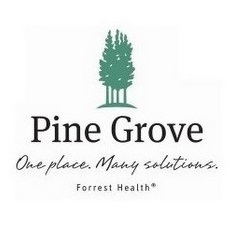
Director of Pine Grove’s Intensive Workshops
Eating disorders are a serious but treatable illnesses with both medical and psychological aspects. Reflected in the fifth edition of the Diagnostic and Statistical Manual of Mental Disorders (DSM-5) published in 2013; anorexia, bulimia and binge-eating disorder are three clearly diagnosable disorders. An individual with anorexia severely restricts his/her food intake; bulimia is self-induced vomiting, over-exercise or misuse of laxatives or diuretics, and binge-eating is consuming a large amount of food and feeling a loss of self control.
Eating disorders often interact with other disorders such as anxiety, depression, and various types of addiction. This could be why eating disorders have the highest death rate of any psychiatric illness. Up to 20 percent of individuals with chronic anorexia will die if the illness is left untreated. Additional community health studies show that bulimia and other specified feeding and eating disorders have comparably high mortality risks.
Individuals with eating disorders usually have an unhealthy focus on food and weight but their problems extend far beyond the obvious. Genetic researchers have found a link between eating disorders, perfectionism, and obsessive traits. Additionally, the malnutrition caused by eating disorder behaviors increases depression and anxiety which in turn negatively impacting all areas of life. It’s important to note that eating disorders are not always simply defined as anorexia, bulimia or binge-eating disorder. In some instances, the diagnosis of other specified feeding or eating disorder may be used.
Eating disorders do not discriminate; males and females of all ages may develop an eating disorder. According to recent eating disorder research, the most common presentation of an eating disorder is a Caucasian, Latina or African-American woman in her 30s or 40s with binge eating disorder. Individuals who struggle with an eating disorder often feel alone in their distress as the quality of their life diminishes. Although eating disorders are believed to be more prevalent in females, researchers and clinicians are seeing a growing number of males seeking help for eating disorders. There are subtle gender differences in eating disorder thoughts and behaviors. Males are more likely to be obsessed with building muscle than with weight loss. They are also more likely to purge using exercise and to misuse steroids than females. Gay, bisexual and transgender males are more likely to develop an eating disorder than are straight males. Men with eating disorders have long been misunderstood and under diagnosed, as well as having to deal with the stigma of having a “woman’s” disease.
The National Eating Disorder Association (NEDA) has partnered with Screening for Mental Health, Inc. to launch www.MyBodyScreening.org, a website where individuals can take a free, anonymous self-assessment to gauge their risk of an eating disorder. Information is a powerful tool in the battle against eating disorders. Honor Eating Disorder Awareness Week by empowering yourself and others with a free screening.
Pine Grove Behavioral Health and Addiction Services is an extension of Forrest General Hospital, located in Hattiesburg, Mississippi. Pine Grove’s world renowned programs focus on treating gender specific chemical addiction including a specialized track for co-occurring eating disorders. Additionally, Pine Grove offers a focused substance abuse healing program for adults age 55 and over. Other Pine Grove specialty programs include a dedicated professional’s treatment curriculum and a comprehensive evaluation center. Pine Grove also features a program for patients with sexual and intimacy disorder issues. Pine Grove was established in 1984 and has provided nationally and internationally recognized health care for over 30 years.
Visit www.pinegrovetreatment.com or call 1-888-574-HOPE (4673) for more information.

